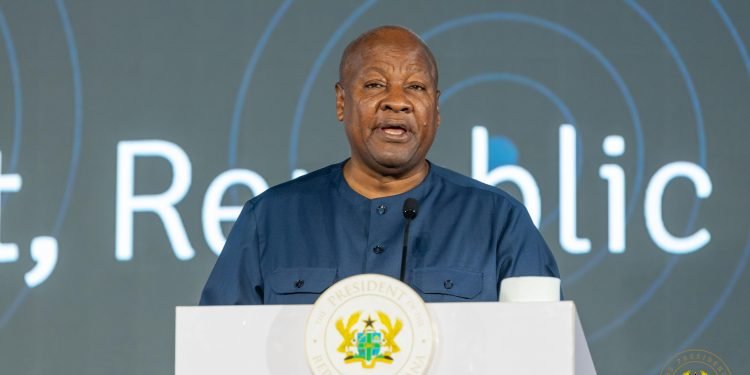President John Mahama has welcomed the latest credit ratings upgrade by Fitch as a strong validation of Ghana’s ongoing macroeconomic recovery and fiscal governance efforts.
In an address on Tuesday, the President noted that Ghana’s economic outlook is rebounding steadily under his administration, which remains committed to prudent fiscal management, enhanced domestic revenue mobilisation, and expenditure rationalisation.
“Working in partnership with the Bank of Ghana, we are stabilising inflation, stabilising the cedi, and pursuing debt restructuring strategies to restore confidence and rebuild the fiscal space for development,” President Mahama stated.
He cited the B- upgrade by Fitch Ratings as a clear sign that the administration’s economic reforms are yielding tangible results.
“Just yesterday, the Fitch Ratings Agency upgraded Ghana’s credit outlook to B-. This marks a significant milestone in our recovery and a boost of confidence in our economy’s trajectory,” he added.
According to Fitch Ratings, Ghana’s Long-Term Foreign-Currency Issuer Default Rating (IDR) was upgraded from ‘Restricted Default’ (RD) to ‘B-’, with a stable outlook. The agency attributed the decision to Ghana’s successful restructuring of USD13.1 billion in Eurobond debt in October 2024, and its continued engagement with the few outstanding creditors, with holdout risks assessed as small.
Fitch further indicated that the new administration is targeting a 1.5% primary surplus in 2025, largely driven by reduced primary expenditure. The agency projects a 0.5% primary surplus in 2025 and 0.9% in 2026, while Ghana’s overall deficit is expected to fall to 3.6% in 2025 and 3.2% in 2026, from a peak of 7.9% in 2024.
President Mahama emphasised that the government is also undertaking institutional and regulatory reforms aimed at promoting transparency, reducing inefficiencies, and expanding the fiscal base. He acknowledged his administration’s continued support in areas such as public financial management, domestic revenue reforms, and anti-corruption, all of which he described as “essential pillars for sustainable growth.”
“As we press forward with our recovery agenda, the international community’s trust is returning and that is crucial for investment, stability, and long-term development,” the President concluded


